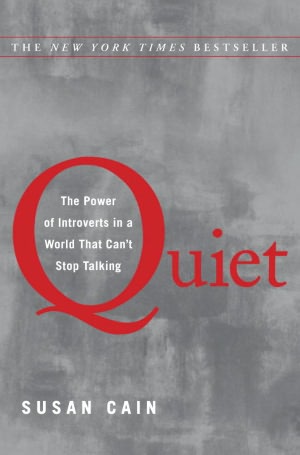Every now and then, a good review comes along which not only compels me to buy the book under review (getting around to reading it is a separate proposition), but which also stands out as a good essay in and of itself.
Sam Rocha’s review of Quiet, by Susan Cain, is an example of this. Quiet presents Cain’s case that contemporary culture undervalues silence, and misunderstands introverts. It’s an interesting idea, but without Rocha’s review, I don’t think I’d commit to reading a whole book on the subject.
But Rocha’s review opens up two related subjects – one explicitly, and the other implicitly.
As a lecturer in philosophy and pedagogy, Rocha has long wondered what, exactly, classroom participation entails. He always includes a note on classroom participation in his course readers. It reads in part:
I have no uniform expectation for participation. Honestly, I don’t really know what this thing called “participation” is exactly. What I do know is this: classroom participation is a mixed bag: better and worse, direct and indirect, this and that and the other thing and that thing over there. The most obvious way to participate is to come to class, and come prepared . . . Beyond attendance and preparation, I would actually prefer that you participate well in indirect ways rather than feel the need to participate poorly in more direct ways. In other words: speaking is not necessarily required for participation. There is space to be an introvert or a contemplative here. Shy and bashful people are welcome here.
Reading Cain’s book has caused Rocha to expand his thinking on this subject. I imagine Quiet could contribute in a similar way to the consideration of liturgy.
The Second Vatican Council famously called for more “active participation” of the lay faithful in the liturgy. It will be interesting to read Cain’s book and see how the cultural assumptions she critiqutes may have informed the post-conciliar liturgical reform, and how her thesis might lend itself to the present ‘reform of the reform.’
I would like also to consider how Cain’s ideas interact with Simone Weil’s thoughts on attention. Weil conceived of attention as a gateway to God. Attention, or attentiveness, is the necessary means not only to philosophical truth, but also to goodness and beauty. She writes particularly of attention to flesh and blood individuals – attention to abstract ideas, she suggests, belongs to the realm of ideology, and ironically blinds us to the truth of each person.
Attention as Weil conceived it features prominently in the Gospel. The Good Samaritan is attentive. (Lk 10:33) So too the watchful servant (Lk 12:36), and the wise virgins with their well-stocked oil lamps. (Mt 25:4) And of course, the mother of Jesus, who treasured our Lord’s sayings, and pondered them in her heart. (Lk 2:19)
Attention, Weil concludes, is the basis of prayer. It is also the basis of love of neighbour. It is not so much an act of the will, but a desire, though it demands effort – “the greatest of efforts perhaps” – and presupposes grace. In short, attention is a form of supernatural love.
I’m interested to see how this idea of attention fits into Cain’s assessment of introversion. Until then, I think I’ll suspend judgement on Rocha’s startling suggestion: “God is an introvert.”






I can’t thank you enough for posting that. Being an introvert my self, I was just pondering similar thoughts and then I saw you blog post.
I struggled in school to make good friends, I think in part because I wasn’t so outgoing, and I was just reminded of that today and then saw your post! Thanks
BTW:
http://www.youtube.com/watch?v=c0KYU2j0TM4
This is great. Thanks Samuel!
Thank you for the kind and thoughtful post, Fr. John. Your connection to liturgy is very near and dear to me. I just finished a monograph titled “Liturgy as Mystagogy,” under review by Paulist Press; in it, I advance the idea that there is too much “noise” of a different sort: anxiety, anger, fear, and quick-fix “innovations.” It is neither a traditionalist nor a contemporary project, simply a call to your insightful understanding of “quiet” through attention. Thanks for the wonderful connection!
SR
ps: Your blog is elegantly laid and quite beautiful!